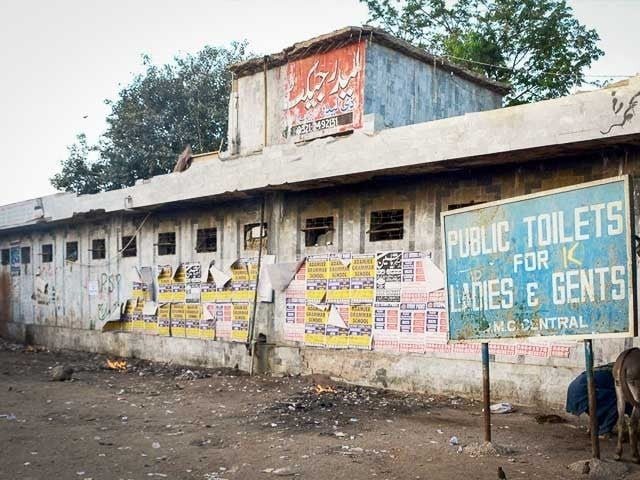SHC orders public toilet committees
In its written order, directs government to enforce Sanitation Policy 201

The Sindh High Court (SHC) has issued a written verdict on a petition concerning public toilets, directing Sindh government to enforce the Sanitation Policy 2017 and establish division-level "Public Toilets Committees" across the province.
Justice Salahuddin Panhwar who presided over a two-member bench, issued a written decision in which the court ordered Mayor of Karachi, the Director General (DG) of Karachi Development Authority (KDA), and Malir Development Authority (MDA) to submit details of construction of public toilets. In its judgment, the court directed that details regarding current situation, location, and usability of public toilets should be submitted. Furthermore, SHC has mandated the establishment of Divisional-Level Public Toilets Committees across the province.
The court stated that the committees would include deputy commissioners, mayors, and Town Municipal Corporation (TMC) chairpersons, with the Mayor of Karachi serving as the chairperson for Karachi committee.
Read more: Shortage of hygienic public toilets plagues Lahore
As per the decision, committees will take measures to improve condition of the existing public toilets. They are also tasked with ensuring that toilets are built in appropriate areas and made accessible to the general population without any charges. Furthermore, a comprehensive awareness campaign needs to be conducted regarding fundamental rights related to access to public toilets. The Chief Secretary and other officials should implement Public Toilets Policy. Furthermore, court has instructed to upload its orders to the official website in Urdu and Sindhi languages.
According to reports submitted, there are 78 parks in Karachi without public toilets, while only eight have them. 182 graveyards, 33 major bazaars and shopping centres, 42 major highways and 970 bus stops and intersections are without public toilets. Even 133 general hospitals and clinics also don't have public toilets.
In its written order, the court noted that ancient city of Mohenjo-Daro, established 2,600 years ago, had a public toilet system. Mohenjo-Daro's sewage system is considered one of the world's first sewage systems.
The World Health Organization (WHO) invests a lot of money in health, clean water, and sanitation. As a member of United Nations (UN), our government must recognise importance of addressing this basic need. We do not have a standard, especially for young children, which is set by international organizations. The government and international organizations should make investments, keeping in mind the privacy of women.
Rural local councils should prioritize addressing these issues since they are closer to the community. The situation demands immediate urgent measures and policies for sanitation improvement and environmental enhancement. There is a pressing need for public toilets, including bus stops, railway stations, parks, and other communal spaces.
Unfortunately, the government and administration have been neglecting this critical issue. It is the fundamental duty of KDA, Karachi Metropolitan Corporation (KMC), MDA, and town administration to establish public toilets in easily accessible locations for community members. Considering needs of elderly individuals, women, and disabled persons, public toilets must be designed accordingly. The court ordered Sindh government to implement on Sentencing Policy 2017.
Tariq Mansoor Advocate contended that individuals such as women, children, and those with disabilities endure hardships when toilets are non-existent in public areas. He urged that the government be directed to construct toilets at bus stops, shopping centres, parks, graveyards, and other public areas. According to the UN Convention, the government is obliged to build public toilets at an official level. The law mandates the government to build toilets in each district. The failure to construct public toilets violates Articles 04 and 19 of the Constitution. Sindh government must be ordered to construct toilets in public places.



















COMMENTS
Comments are moderated and generally will be posted if they are on-topic and not abusive.
For more information, please see our Comments FAQ